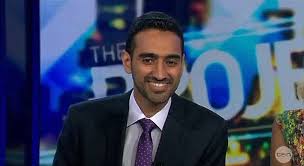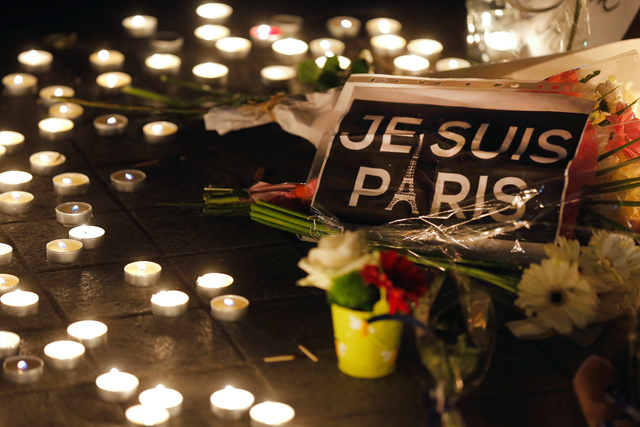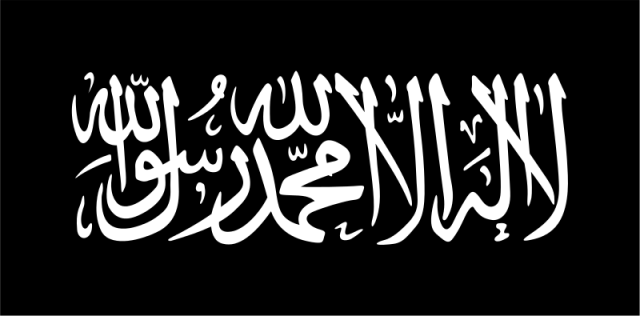Love is Not Enough when it comes to the Islamic State [Video]
Dr. Mark Durie, Australian pastor Middle East Forum Shillman Ginzburg Fellow and author, posted this commentary after Australian TV commentator Waleed Aly expressed a view that after the ISIS massacres and jihad in Paris, the world needed push back in the form of love, not hate; meaning unity between Muslims and unbelievers. This went viral Down Under getting more than 27 million hits since it aired on November 16th. Durie presents an alternate view that one must look at the Qur’anic ideology propelling the self-declared Caliphate attracting tends of thousands of followers in the way of Allah committing Jihad against unbelivers or kuffirs. Further that Aly’s proposal; doesn;t obviate asking the hard questions about the ideology of ISIS that professes it is following the example of Mohammed and his companions as expressed in Sura 8:39: “And fight with them until there is no more persecution (fitnah) and religion should be only for Allah; but if they desist, then surely Allah sees what they do [Quran 8:39] ,” Note Durie’s takeaway from Aly’s view:
Furthermore, a danger with Waleed Aly’s rhetoric is that it could work as a wedge to separate love from truth, treating the two as strangers. It could be used as a pretext to censor those who ask the hard questions, on the grounds that this is unloving. In this struggle it is wrong to privilege either love or truth, for we will need both.
Truth without love can cause endless heartache. This is true. But love without truth can cause a naive blindness which meekly tolerates abuse and leads to suicidal submission.
See our interview with Dr. Durie, “Imperialist Islam Unveiled” in my collection, The West Speaks and our NER review of his book, The Third Choice: Islam , Dhimmitude and Freedom.
Watch what Aly said on Bribane TV and compare that with what Durie wrote in his post.

Waleed Aly, Australian Brisbane TV commentator. Source: The Daily Mail, U.K.
Love alone is not enough
By Dr. Mark Durie
Waleed Aly is a well-known Australian media commentator. This week on Channel Ten’s The Project he produced an impassioned and compelling speech about the Paris killings. This went viral, achieving 27 million views on social media within just a few days. That is more hits than there are people in Australia.
Watch this You Tube video of Waleed Aly’s Brisbane TV commentary:
According to Waleed Aly, ISIS is weak but it hides this because it wants us all to be afraid, very afraid. Its whole purpose is that our fear will turn to hate, and hate will ripen into ‘World War III’.
All people of good will who would stand against ISIS, Muslim or non-Muslim alike, must therefore come together in unity. According to Waleed Aly, love, and less hate is what we need.
Waleed Aly is absolutely right that we do need love. But like the air we breathe, love by itself is not enough. It is not all we need.
We also need truth, and a whole lot more of it. John’s gospel reports that Jesus came ‘full of grace and truth.’ Truth without grace becomes a police state. But grace without truth is every bit as dangerous.
Waleed Aly himself rightly identified the Paris atrocity as an “Islamist terrorist attack”. It is not hatred to ask what this word ‘Islamist’ actually means.
He was also right to point out that ISIS wants to set non-Muslims and Muslims against each other. But this is not all ISIS wants, and saying this does not explain why they want it. It is not enough to say “ISIS wants to cause World War III,” for war is but a means to an end. This tactic is a symptom of a problem, not its root cause.
Asking hard questions is not evidence of lack of love. It is not victimizing Muslims to seek to understand the theology of the jihadis. Asking how and why ISIS makes use of the Qur’an or the model of Muhammad is not vilification.
These points are important because the feeling of being unloved by itself is not enough to turn so many young people into killers. There are many communities in the world which experience hatred, but this is rarely enough on its own to give rise to virulent, violent global ideologies.
No one could dispute that the tactic of intentionally using violence to incite fear and hatred is one of the weapons in the jihadis’ arsenal, but it is just that: a tactic. Hatred incited by violence is not the heart of the matter, nor the fundamental driver in this war. It is but a symptom of deeper things.
Hatred can fuel this war, but love alone will not put it out.
Furthermore, a danger with Waleed Aly’s rhetoric is that it could work as a wedge to separate love from truth, treating the two as strangers. It could be used as a pretext to censor those who ask the hard questions, on the grounds that this is unloving. In this struggle it is wrong to privilege either love or truth, for we will need both.
Truth without love can cause endless heartache. This is true. But love without truth can cause a naive blindness which meekly tolerates abuse and leads to suicidal submission.
This is likely to be a very long war. Relationships will be strained. And yes, we will all need a lot of compassion. But without truth to strengthen it, love alone will not save us.
This post also appeared in Lapido Media.
Mark Durie is the pastor of an Anglican church, a Shillman-Ginsburg Writing Fellow at the Middle East Forum, and Founder of the Institute for Spiritual Awareness.


